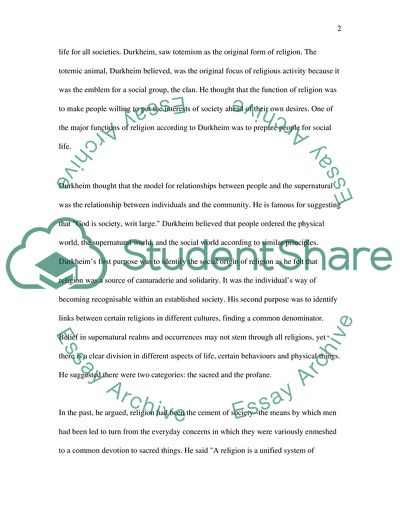Cite this document
(In What Ways did Durkheim and Weber Regard Totemism and Ascetic Coursework, n.d.)
In What Ways did Durkheim and Weber Regard Totemism and Ascetic Coursework. https://studentshare.org/religion-and-theology/1705854-in-what-ways-did-durkheim-and-weber-regard-totemism-and-ascetic-protestanism-respectivelyas-imortant-influences-on-the-behaviour-of-people
In What Ways did Durkheim and Weber Regard Totemism and Ascetic Coursework. https://studentshare.org/religion-and-theology/1705854-in-what-ways-did-durkheim-and-weber-regard-totemism-and-ascetic-protestanism-respectivelyas-imortant-influences-on-the-behaviour-of-people
(In What Ways Did Durkheim and Weber Regard Totemism and Ascetic Coursework)
In What Ways Did Durkheim and Weber Regard Totemism and Ascetic Coursework. https://studentshare.org/religion-and-theology/1705854-in-what-ways-did-durkheim-and-weber-regard-totemism-and-ascetic-protestanism-respectivelyas-imortant-influences-on-the-behaviour-of-people.
In What Ways Did Durkheim and Weber Regard Totemism and Ascetic Coursework. https://studentshare.org/religion-and-theology/1705854-in-what-ways-did-durkheim-and-weber-regard-totemism-and-ascetic-protestanism-respectivelyas-imortant-influences-on-the-behaviour-of-people.
“In What Ways Did Durkheim and Weber Regard Totemism and Ascetic Coursework”. https://studentshare.org/religion-and-theology/1705854-in-what-ways-did-durkheim-and-weber-regard-totemism-and-ascetic-protestanism-respectivelyas-imortant-influences-on-the-behaviour-of-people.


